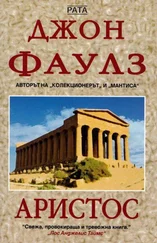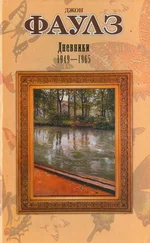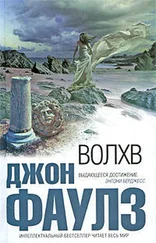Джон Фаулз - The Tree
Здесь есть возможность читать онлайн «Джон Фаулз - The Tree» весь текст электронной книги совершенно бесплатно (целиком полную версию без сокращений). В некоторых случаях можно слушать аудио, скачать через торрент в формате fb2 и присутствует краткое содержание. Жанр: Современная проза, на английском языке. Описание произведения, (предисловие) а так же отзывы посетителей доступны на портале библиотеки ЛибКат.
- Название:The Tree
- Автор:
- Жанр:
- Год:неизвестен
- ISBN:нет данных
- Рейтинг книги:5 / 5. Голосов: 1
-
Избранное:Добавить в избранное
- Отзывы:
-
Ваша оценка:
- 100
- 1
- 2
- 3
- 4
- 5
The Tree: краткое содержание, описание и аннотация
Предлагаем к чтению аннотацию, описание, краткое содержание или предисловие (зависит от того, что написал сам автор книги «The Tree»). Если вы не нашли необходимую информацию о книге — напишите в комментариях, мы постараемся отыскать её.
The Tree — читать онлайн бесплатно полную книгу (весь текст) целиком
Ниже представлен текст книги, разбитый по страницам. Система сохранения места последней прочитанной страницы, позволяет с удобством читать онлайн бесплатно книгу «The Tree», без необходимости каждый раз заново искать на чём Вы остановились. Поставьте закладку, и сможете в любой момент перейти на страницу, на которой закончили чтение.
Интервал:
Закладка:
I come now near the heart of what seems to me to be the single greatest danger in the rich legacy left us by Linnaeus and the other founding fathers of all our sciences and scientific mores and methods — or more fairly, left us by our leaping evolutionary ingenuity in the invention of tools. All tools, from the simplest word to the most advanced space probe, are disturbers and rearrangers of primordial nature and reality — are, in the dictionary definition, 'mechanical implements for working upon something.’ What they have done, and I suspect in direct proportion to our ever-increasing dependence on them, is to addict us to purpose: both to looking for purpose in everything external to us and to looking internallyfor purpose in everything we do — to seek explanation of the outside world by purpose, to justify our seeking by purpose. This addiction to finding a reason, a function, a quantiiiable yield, has now infiltrated all aspects of our lives — and become effectively synonymous with pleasure. The modern version of hell is purposelessness.
Nature suffers particularly in this, and our indifference and hostility to it is closely connected with the fact that its only purpose appears to be being and surviving. We may think that this comprehends all animate existence, including our own, and so it must, ultimately; but we have long ceased to be content with so abstract a motive. A scientist would rightly say that all form and behaviour in nature is highly purposive, or strictly designed for the end of survival — specific or genetic, according to theory. But most of this functional purpose is hidden to the non-scientist, indecipherable; and the immense variety of nature appears to hide nothing, nothing but a green chaos at the core — which we brilliantly purposive apes can use and exploit as we please, with a free conscience.
A green chaos. Or a wood.
In some mysterious way woods have never seemed to me to be static things. In physical terms, I move through them; yet in metaphysical ones, they seem to move through me, just as, if I watch a film, I stay physically in one place and it is the images in the projector gate that shift; as do the words on the page and the scenes they evoke, when read. This inner or mental reversal of the actual movement, common to all traveling, comes very close to what I like most in all narrative art from the novel to the cinema; that is, the motion from a seen present to a hidden future. The reason that woods provide this experience so naturally and intensely lies, of course, in the purely physical character of any large congregation of trees; in the degree to which they hide what exists, at any given point, beyond the immediately visible surroundings. In this they are like series of rooms and galleries, house-like, doored and screened, continuous yet separate; or paged and chaptered, like a fiction. Just as with fiction, there are in this sense good and bad tree congregations — some that tempt the visitor to turn the page, to explore further, others that do not. But even the most 'unreadable’ woods and forests are in fact subtler than any conceivable fiction, which can never represent the actual multiplicity of choice of paths in a wood, but only one particular path through it. Yet that multiplicity of choice, though it cannot be conveyed in the frozen medium of the printed text, is very characteristic of the actual writing; of the constant dilemma — pain or pleasure, according to circumstances — its actual practice represents, from the formation of the basic sentence to the larger matters of narrative line, character development, ending. Behind every path and every form of expression one does finally choose, lie the ghosts of all those that one did not.
I do not plan my fiction any more than I normally plan woodland walks; I follow the path that seems most promising at any given point, not some itinerary decided before entry. I am quite sure this is not some kind of rationalization — or irrationalization, after the fact; that having discovered I write fiction in a disgracefully haphazard sort of way, I now hit on the passage through an unknown wood as an analogy. It is the peculiar nature of my adolescent explorings of the Devon countryside (peculiar because I had not been brought up in a rural atmosphere, could not take the countryside for granted, indeed it came to me with something of the unreality, the not-quite-thereness of a fiction) that made me what I am — and in many other ways besides writing.
I see now that what I liked best about the green density, the unpeopled secrecy of the Devon countryside that the chances of history gave me was its explorability. At the time I thought I was learning to shoot and fish (also to trespass and poach, I am afraid), to botanize and bird-watch; but I was really addicting myself, and beyond curability, to the pleasures of discovery, and in particular of isolated discovery and experience. The lonelier the place, the better it pleased me: its silence, its aura, its peculiar conformation, its enclosedness. I had a dream of some endless combe, I suppose almost an animal dream, an otter — dream, of endless hanging beechwoods and hazel — coppices and leated meadows, houseless and manless. It was not quite without substance in those days, such ‘lost’ valleys still existed and in some of them the rest of the world did not. But of course they were linite, and at some point ended at a lane, a cottage or farmhouse, 'civilization', and discovery died.
The cost of all this is that I have never gained any taste for what lies beyond the experience of solitary discovery — in terms of true geographical exploration, for the proper exploitation of the discovery. I have dabbled in many branches of natural (and human) history, and have a sound knowledge of none, and the same goes for countless other things besides. I like a kind of wandering wood acquaintance, and no more; a dilettante’s, not a virtuoso's, always the green chaos rather than the printed map. I have method in nothing, and powers of concentration, of patience in acquiring true specialized knowledge, that would disgrace a child, I can concentrate when I write, but purely because it is a sublimated form of discovery, isolated exploration, my endless combe in leaves of paper. I place all this entirely upon the original adolescent experience, for I do not think I was born so, with a painfully low threshold of boredom before learning or knowledge that is not clearly assimilable to the experience of solitary discovery.
Perhaps because I was brought up without any orthodox faith, and remain without it, there was also, I suspect, some religious element in my feeling towards woods. Their mysterious atmospheres, their silences, the parallels-especially in beechwoods — with columned naves that Baudelaire seized on in his famous line about a temple of living pillars, all these must recall the man-made holy place. We know that the very first holy places in Neolithic times, long before Stonehenge (which is only a petrified copse), were artificial wooden groves made of felled, transported and re-erected tree trunks, and that their roofs must have seemed to their makers less roofs than artificial leaf-canopies. Even the smallest woods have their secrets and secret places, their unmarked precincts, and I am certain all sacred buildings, from the greatest cathedral to the smallest chapel, and in all religions, derive from the natural aura of certain woodland or forest settings. In them we stand among older, larger and infinitely other beings, remoter from us than the most bizarre other non-human forms of life: blind, immobile, speechless (or speaking only Baudelaire’s confuses paroles), waiting. . altogether very like the only form a universal god could conceivably take. The Neolithic peoples, the slaves, as we are of an industrial economy, of their own great new cultural ‘invention’ of farming, were the first great deforesters of our landscapes, and perhaps it was guilt that made them return to the trees to find a model for their religious buildings — in which they were followed by the Bronze Age, the Greeks and Romans with their columns and porticoes, the Celtic Iron Age with its Druids and sacred oak-groves.
Читать дальшеИнтервал:
Закладка:
Похожие книги на «The Tree»
Представляем Вашему вниманию похожие книги на «The Tree» списком для выбора. Мы отобрали схожую по названию и смыслу литературу в надежде предоставить читателям больше вариантов отыскать новые, интересные, ещё непрочитанные произведения.
Обсуждение, отзывы о книге «The Tree» и просто собственные мнения читателей. Оставьте ваши комментарии, напишите, что Вы думаете о произведении, его смысле или главных героях. Укажите что конкретно понравилось, а что нет, и почему Вы так считаете.









![Джон Фаулз - Вылазка в действительность [антология]](/books/431648/dzhon-faulz-vylazka-v-dejstvitelnost-antologiya-thumb.webp)
![Джон Фаулз - Мантисса [litres]](/books/438194/dzhon-faulz-mantissa-litres-thumb.webp)